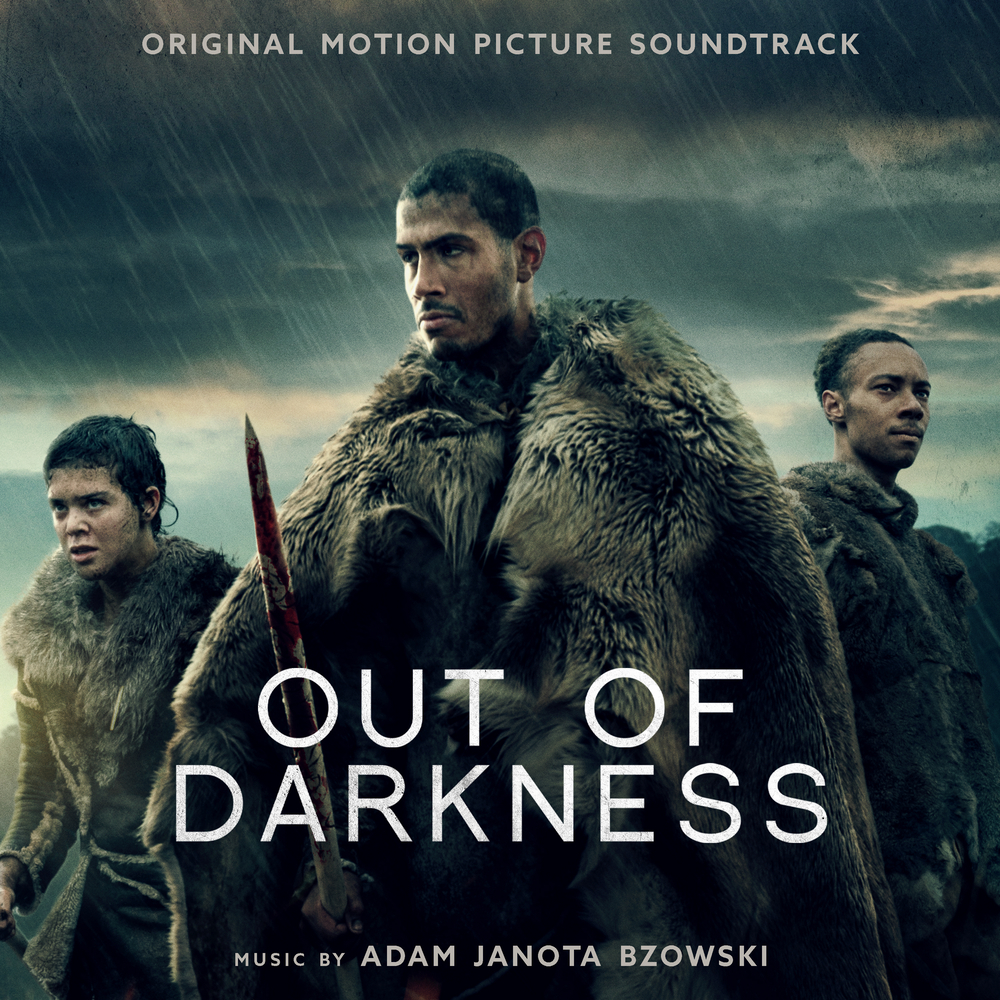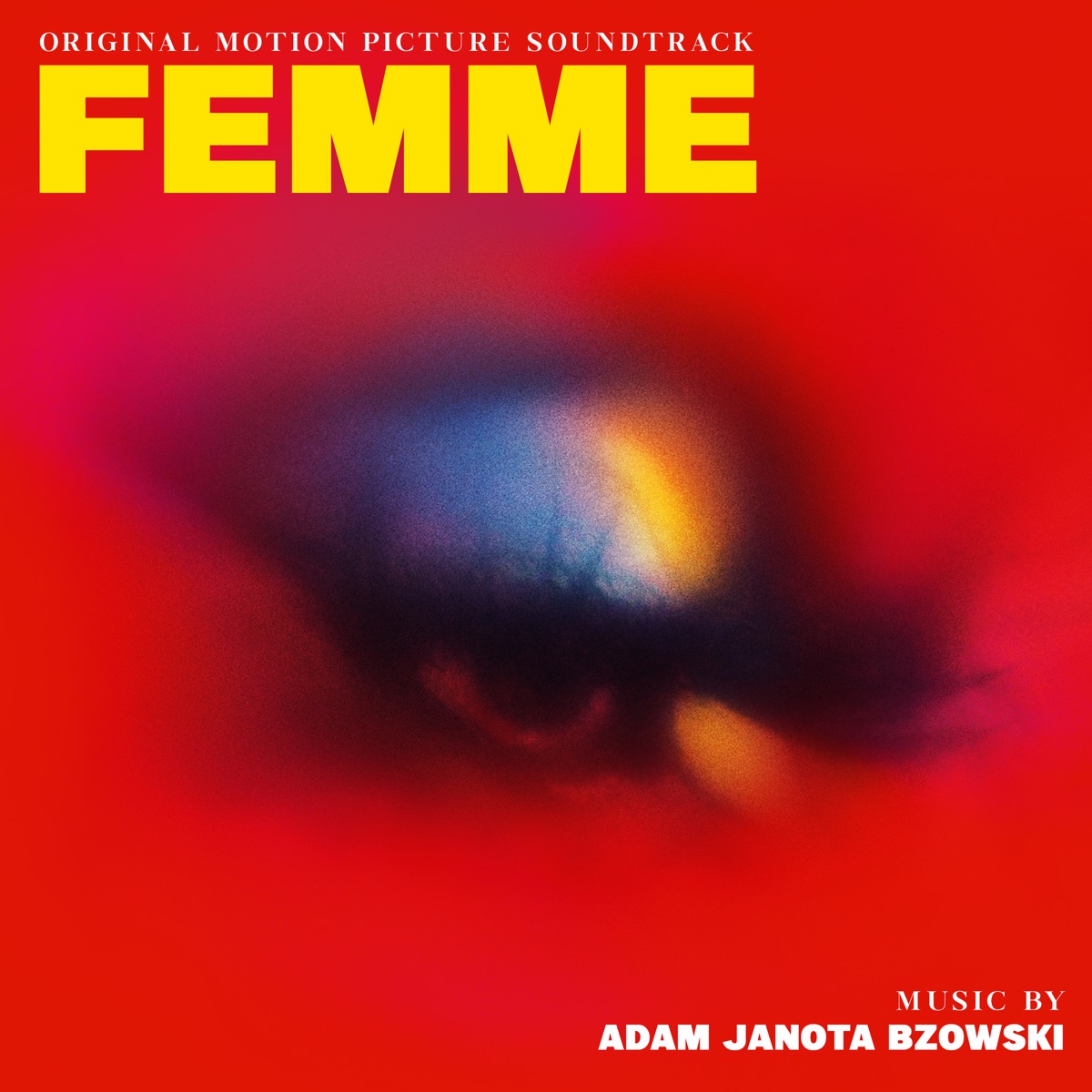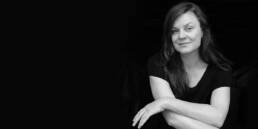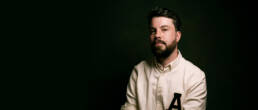
Adam Janota Bzowski is a London-based composer and sound designer who has been working in film and television music composition for over a decade. He made his “breakthrough” with his score for Saint Maud, earning a British Independent Film Award (BIFA) nomination for Best Score in 2020. He followed that with well-received scores for Here Before and The Marsh King’s Daughter, the latter of which was featured in “The Best Scores of 2023” at OnTheScore.com. Adam’s music is featured in two upcoming and recent films, Out of Darkness, which premiered at the 2022 BFI London Film Festival, and earned another BIFA nomination for Best Score, and Femme, a film that challenges the notions of love, relationships, and masculinity. I had the opportunity to speak with the composer in mid-February via video call. Our topics ranged from music in those recent films, music education, and some of our most cherished music.
Before we really get into talking about your recent film scores, could you tell us a little bit about your background and what led you into music composition?
I was always really fascinated with sound from a young age and I think that’s really pretty much what I still define myself as to this day. I don’t really think of myself as a composer. I think of myself as more like a sound collagist, you know? I remember we had a piano at home, and I was very drawn to this instrument because it was very interesting as a sounding thing to experience.
So I learned how to play the piano kind of on my own. People taught me Boogie-Woogie blues and 12-bar blues. My mom tried to get me lessons, but I rejected the rigidity of music theory. I immediately connected with this instrument and then someone would be like, “OK, now play crotchets,” and I was like, “No, I feel nothing for this,” so I unfortunately rejected music education, but retained a love for exploring sound.
Later I went to University of Brighton and I studied something called Digital Music and Sound Arts, which was a kind of hippie version of music. I learned about Steve Reich there, audio installations, music as art; really cool stuff. [We also learned] music production coding and how to use DAWs and that was really important for me because it was a foundation into all that [sound creation]. But it was really difficult to make a living from music straight out the gate. In fact, at university, they were like, “Oh, don’t worry, with your degree you can become an accountant if you don’t become a musician,” and I thought, “Oh, I see.” I was massively disillusioned, but my root into [composition] was sound design. There were loads of composers, but not many sound designers, so obviously, me being interested in sound, I would make stuff for short films and animations and slowly that kind of melded with music. The bridge between the two became much more opaque and you couldn’t really tell what was music and what the sound design. That’s basically me.
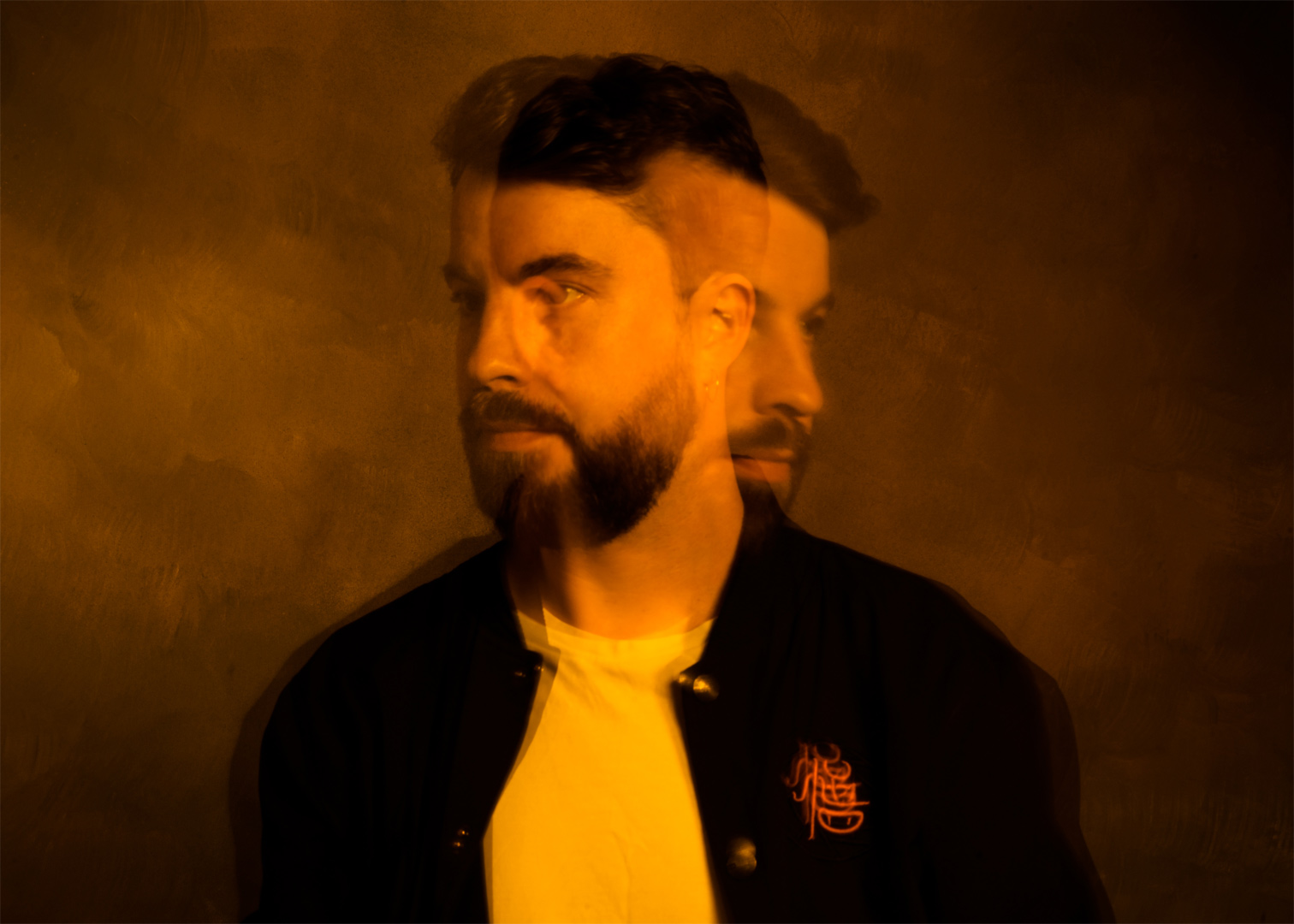 ADAM JANOTA-BZOWSKI
ADAM JANOTA-BZOWSKI
You were talking about sound design in your background, so I’m sure you had an experience with Varèse and Poeme Electronique, the audio-video installation at the World’s Fair in 1958 I think it was. What sort of composers were you really drawn to at that point in your life?
For us, Iannis Xenakis was a main one. Steve Reich, like I said earlier. I remember so clearly and I don’t know if you have this, but in a piece of music you discover for the first time and you’re instantly transported to exactly where you were. We were in a dark room in Studio One in the university and they played 10 minutes of the first section of Music for 18 Musicians [by Steve Reich] and I was just utterly blown away. I’d never experienced something like this. This cascading like a feeling in my bones; I’m still getting chills just thinking about it. This idea of phasing, even in Come Out, which is that tape loop piece, is just incredible.
Obviously, the other [significant composer was] John Cage, the complete opposite [of Reich]. 4’33”, this idea of, “What is music,” because his whole thing was about sound. Sitting in a room and listening and these two things crystallized in me so much, this idea of, “What you can explore music to be?” Before that I was into Slipknot and metal and a big barrage of sound, but then I discovered music as art. Music has an exploration of thought, like being philosophical and academic at the same time whilst still being beautiful. It completely changed my life.
Going back to your point about being transported for the first time you hear something, my experience with that is hearing the Vaughan Williams Tallis Fantasia. I was in my bedroom in high school, 16 years old. My mom checked out this CD from the library and said, “Here, you have to listen to this” and I put it on and just sort of stood there. The other one I have is Sigur Rós. I was in London in November 1999 doing some research at the British Library and I never got adjusted at the time change, so I was up at 3:00 AM and flipped on MTV UK and there was their first single, “Svefn-g-englar,” and I just sort of stared at the TV for six minutes and went, “Oh my God, this is the most amazing thing I’ve ever heard.”
Hold on. Is that the one that starts with the “dum” [makes sound]?
Yeah, with the sonar ping.
Oh my God, that’s my funeral music! Literally, I’ve written it in my will. That band! I think I found that album later because I got brackets first [the album titled ( )]. Post-rock is another thing that just massively transformed my life and further to what you said regarding turning on the TV, especially late at night and finding music, is an incredibly important aspect of my personal musical upbringing, that sense of discovery because it’s very personal and it’s also unplanned so you’re just watching and then suddenly something stops you, right? I found so many bands that way and I don’t really know if we have that anymore because streaming doesn’t really permit that kind of discovery.
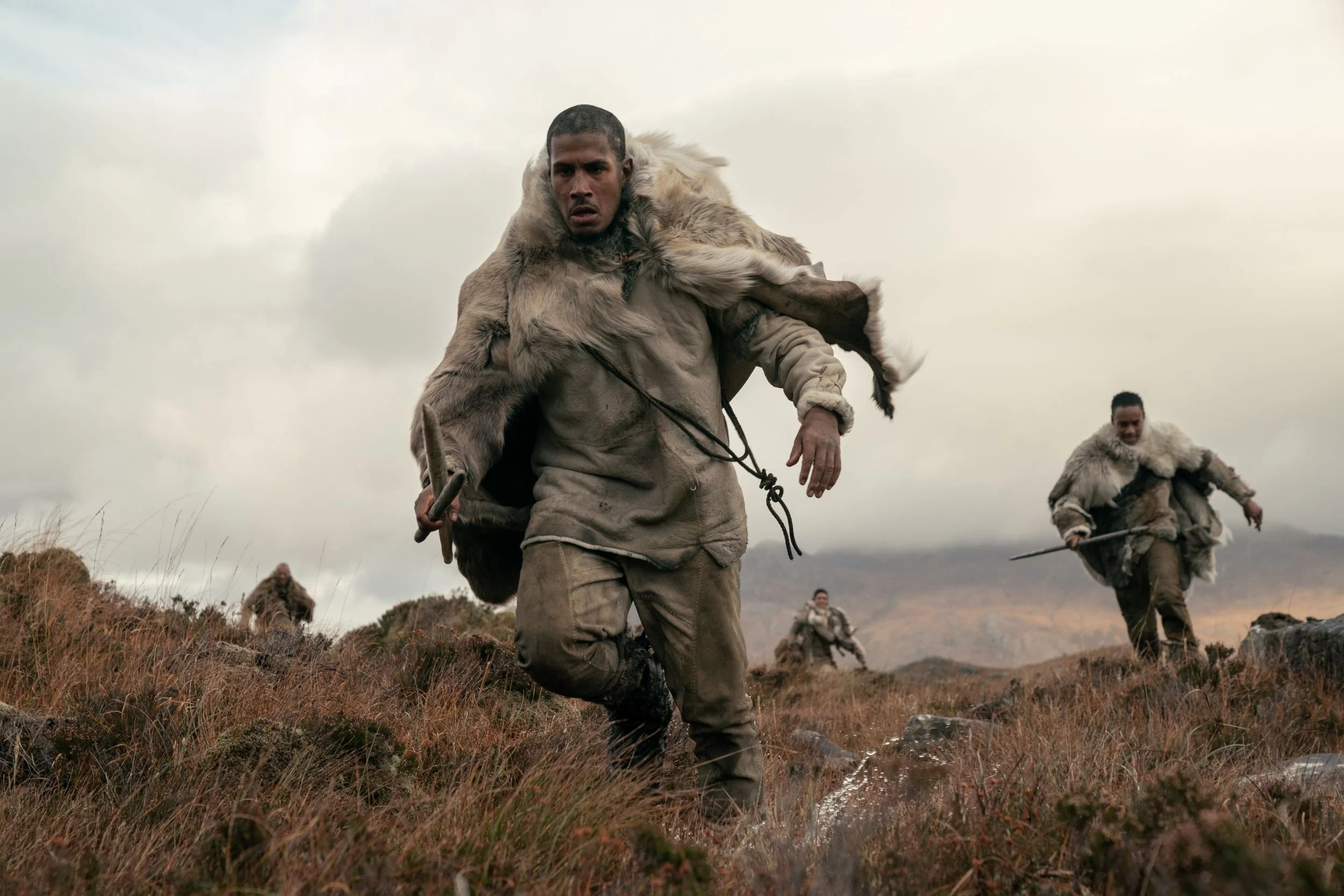 STILL FROM OUT OF DARKNESS
STILL FROM OUT OF DARKNESS
Right, MTV used to have “120 Minutes” on the weekends where you would find all the really cool stuff. I remember in the 1990s they would have all sorts of fascinating electronica like Photek. Photek is not dance music; it’s thoughtful drum and bass where you have to pay attention to it because it’s always changing and the rhythms are so intricate, and you’d get Future Sound of London and you’d be sitting there thinking, “This is incredible. Why don’t they play this during the day?”
Absolutely! But there’s something about the late-night aspect of it, where it’s this semi-hypnagogic where you’re half asleep, and there’s also a romanticized aspect of it, too. It’s like writing music at that time because you feel like the rest of the world is asleep and it’s just you and you’re in this little cocoon, right? And discovering music that way, it’s the same thing. This [music] is mine. This is my private little moment.
That was totally me with Sigur Rós. I got back to the US, and you couldn’t buy it in the US. I had to order import CDs and everyone’s like, “What the hell are you listening to?” I kept saying, “You don’t understand! This is amazing! I found it in London at 3:00 AM!” My friends would ask, “What were you doing up at 3:00 AM,” and I’d respond, “It doesn’t matter.”
Yeah, you’re missing the point, dude! [laughs] I absolutely love that band.
Let’s talk about a couple of your brand-new film scores. I guess they’re not “brand-new” since Out of Darkness premiered about 15 months ago at the BFI London Film Festival [in October 2022]. But the film was released in the US on February 9th and it’s received a lot of critical acclaim over here. Critics really are enjoying it. As you were scoring this film, were you able to see the quality of the film as you were working through it?
Oh, I never know. I am a terrible judge. I am constantly amazed at films that ever get made. [laughs] When I’m getting the edit, it’s so scrappy and so rough and there are so many things still to do that I’m like, “What the hell am I working on? What is this?” Editing as a job is basically like alchemy. It’s like some kind of magic and you don’t know bad editing until you see it.
So at the beginning I didn’t. No idea if it’s good, but I’ve got a job, so I’ve got to make sure that I do a good job, but with this, I knew it was special because it was unlike anything that had been done before with the material. I like to call it like, a fictional nonfiction film; it’s not real, but there are historical accuracies. There are definitely anachronisms, but it could have happened exactly like this, and that is so cool. It seems like a weak word, but “cool” is the most important thing about this film. I just thought it was such a cool film to work on and I’m just so glad. This is my magnum opus. I feel like I could die happy because I’ve done this film.
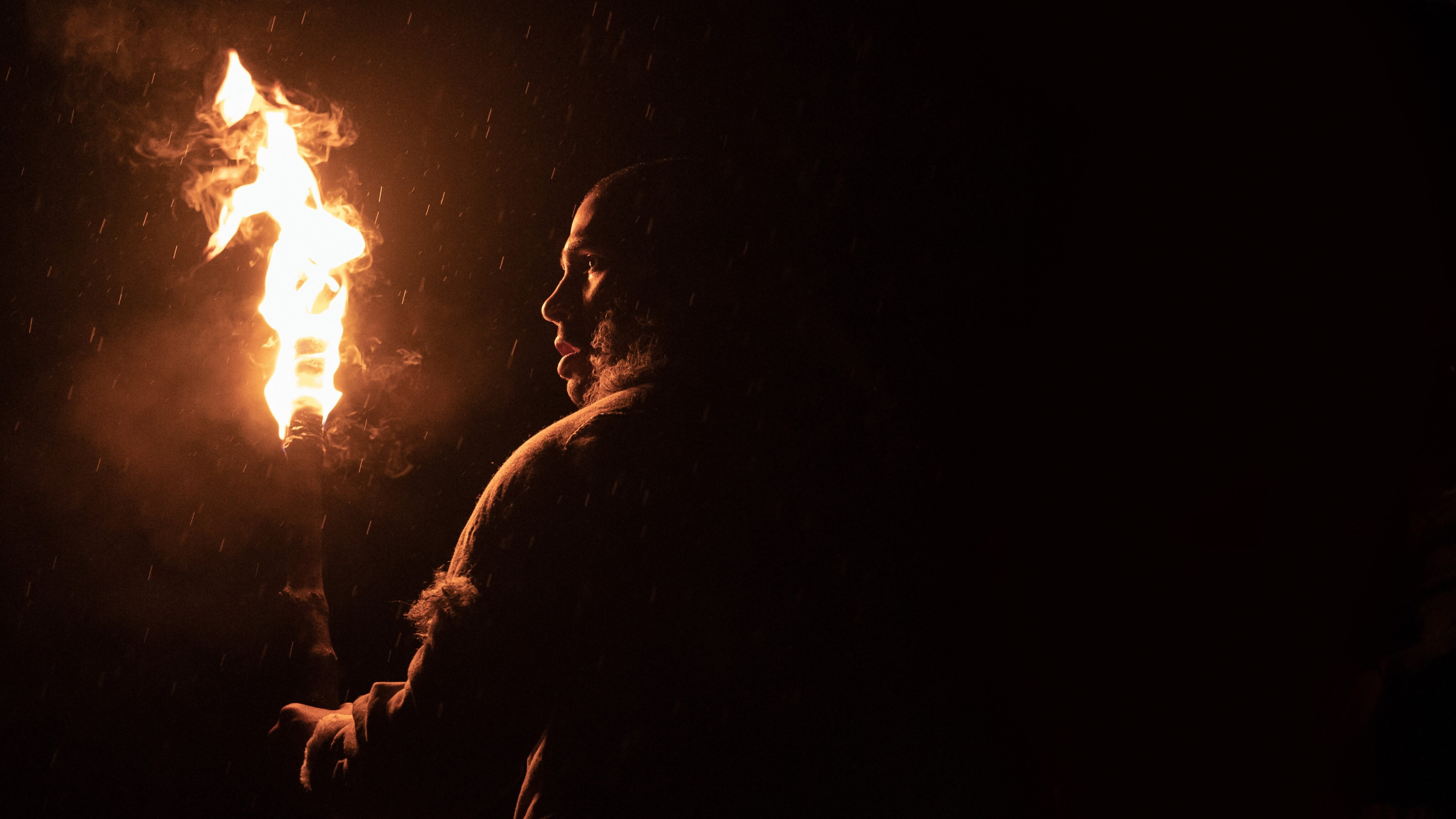 STILL FROM OUT OF DARKNESS
STILL FROM OUT OF DARKNESS
Let’s talk about the instrumentation for your music, because we have so much electronic music, but then we have lots of acoustic percussion, and we have all sorts of other instruments that had to be created from found objects. What sort of acoustic instruments were you able to use for this score?
If we’re going to go 45,000 BC, we’ve got to try and make something that feels right, so I got very academic at the beginning, very philosophical, because we had a long time to welcome the film. I spent about a year on it, and I was asking myself these questions: What was the purpose of music? What was everyone doing for music back then? They sent me down a rabbit hole, but the only evidence I could find of music musical instruments was this Paleolithic bone flute that was found, which is made of the wing bone of a vulture. It had these crude holes drilled in it, and I met this guy, Barnaby Brown, who had a one-to-one recreation of this thing. He had this bone flute and I was thinking, “This is literally the instrument that they would have used,” so we had to use that. He is a Paleolithic expert on instruments and he had different things made out of wood––a duduk-type thing and an aulos, which I think is Greek. The aulos kind of has a drone pipe and another [pipe] you can play the melodies on, and he put a reed in this bone pipe because the reed would have decayed in time. We don’t know if it had a reed or not, but I swear to you, straight out the box, this thing sounded like an Irish jig, like, you just couldn’t not play Irish folk, kind of Gaelic mountain music. I said, “No, we can’t do that, it doesn’t work. It just sounds like we’re like on the Titanic or something.”
“The instruments just create an incredibly savage and brutal sound, which is exactly what the film does as well.”
I wanted to use things that would have been relevant to the time, so animal skin drums, things made out of bones, lots of wood, because that maybe made sense, wood blocks, claves, just wooden sticks, so it’s an incredibly percussive score. But then I also found this guy in Australia, who used conches and I thought, “That’s an incredibly natural object that straight out the gate makes a tone.” His name was Colin Offord, and he made these incredible noises and they ranged from a tritone which is quite small to huge but billowing things, and he also had things like the horn of a kudu. I got to use all these crazy wind instruments that just created incredible textures.
It’s really fascinating that you’re using these things because there are historical precedents for this, of course, like Jerry Goldsmith in Planet of the Apes, using Ram’s horn and all of these other found objects for percussion. We’re presumably on a planet that is so technologically unadvanced that that’s the sort of instrumentation that they would use. And your score falls into that realm of musical composition in that you’re following in the footsteps of someone who’s already done it. These characters, yes, they’re human, but they are as technologically unadvanced as we could possibly imagine. We don’t see any wheels anywhere, right?
Yeah.
Everything is on foot and they have a spear for hunting and the girl has a little knife carved out of flint or rock.
It’s like a plain blade, yeah.
There’s just no technology and it’s wildly foreign to what we’re experiencing now. I think it’s so fascinating that you’re able to connect that with the instrumentation.
The instruments just create an incredibly savage and brutal sound, which is exactly what the film does as well.
In contrast to all of that savage music, the opening and the conclusion of the film are both based on stories that the young boy is asking to hear and that music is very different. It has a lot more hope in it than the bulk of the film. What was it like composing that music?
Generally, the way I work with most films, if I have the time, is I will make sketches before I get a script or a pitch deck of images and stuff, and the penultimate cue before the credits roll, which is called “Like us,” it was actually a sketch. I’ve done these recordings with Barnaby, so that’s all the bone flute stuff. I generally tend to write naturally, very sad, miserable music, you know, which is why we like Sigur Rós. [laughs] And this was one of the pieces that I wrote as a sketch. It had a funeral vibe to it anyway, so it made sense when they did the edit. Andrew [Cummings], the director, just dropped it in and it worked perfectly. He loved how that fit.
Conversely, the first cue which is called “A Promised Land,” that was a lot of Viking horns and stuff that I had samples of. It took a really long time to build that first edit of that [cue] because people felt it was very sluggish. The edit changed so much in this film, and it’s this long arching piece that kind of takes over this fable that he’s telling us. I was really trying to boost this moment. Andrew said, ‘This is the most hopeful moment of the entire film, and you can actually hear in the cue where [the character] Odal says, “But it was barren,” and then the music is hard cut to, “Wow!”’
Well, it’s not subtle at all. [laughs]
Exactly! I remember it was quite a laborious process to get to that because it had to ebb and flow but it was nice to have this more peaceful moment, whereas the rest of the score is mostly doom and gloom.
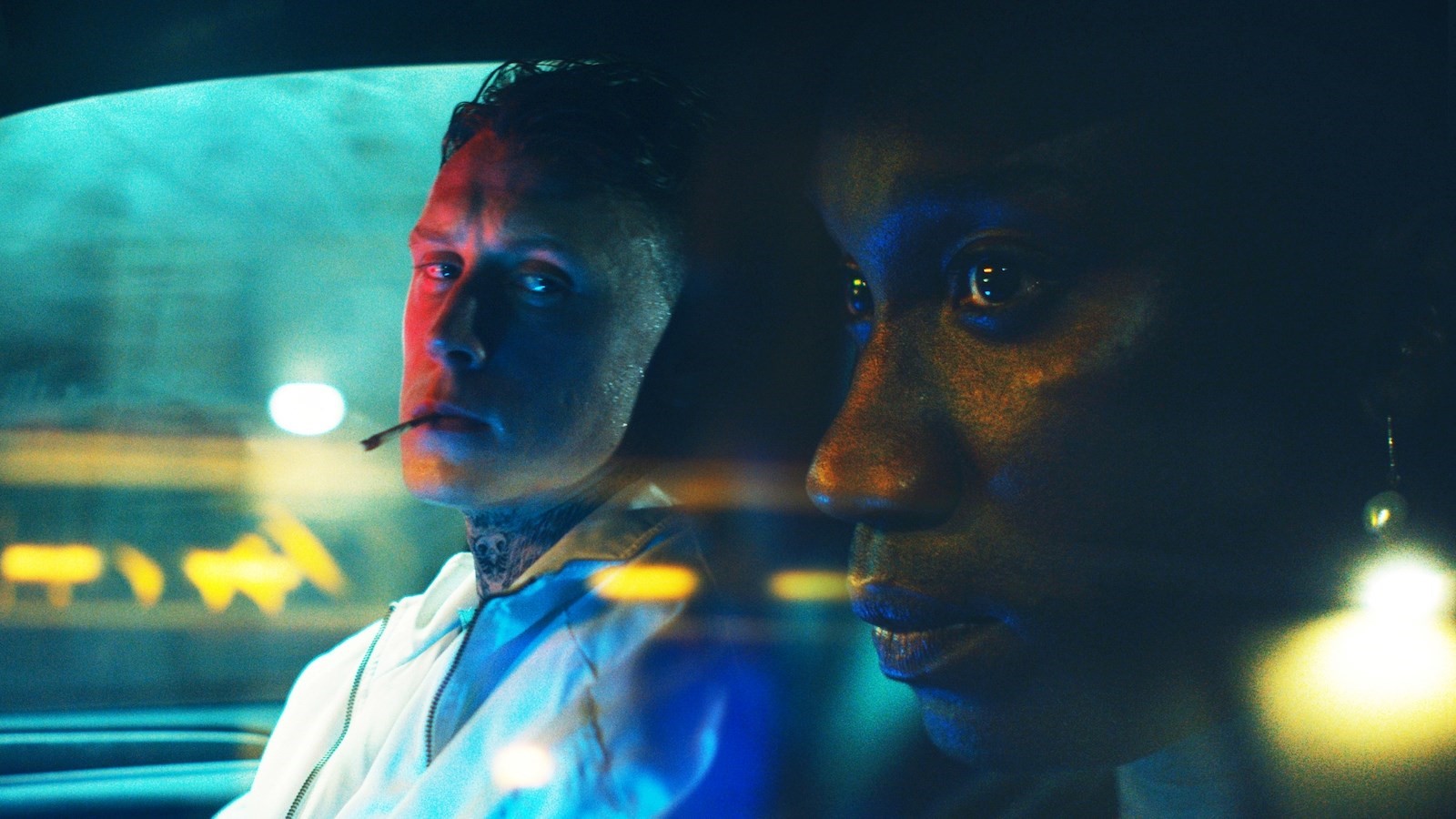 STILL FROM FEMME
STILL FROM FEMME
You have another film that you scored coming out very soon and that one is titled Femme and it hits Netflix in the UK on February 29th and hits theaters in the United States on March 22nd. This film is an outgrowth of a short film, is that correct?
Yes, that’s right. I think they won a BAFTA for it as well.
How did you get involved with this project?
That film came through my agent, Ollie, and he said that these guys were struggling. I think they’d gone through a few composers or something, like the music wasn’t quite landing. I only had three weeks to do this score, so they said the edit is locked. It was already a finished film, so
I went and I watched it. I thought it was amazing and went to this meeting with the execs, the producers, and the directors. It’s such a strange moment because you kind of have to sell yourself and sell your vision of what you think the film should sound like, whilst making them feel like you understood what was happening, so I remember just talking real nonsense about things like, “I should sound like a gay Blade Runner” or some other things and afterwards you leave the interview, and I thought, “Oh my God, what did I say?”, but obviously it worked.
The tension that’s present in this film, it never stops and there are so few moments where you actually get to take a breath and you can relax. How are you able to keep the tension going for that long?
I never really think about it. It’s funny actually, because I was trying to get pull quotes for all of my different scores to make press releases and across all films, the word that kept coming up was “dread.” And I’m thinking, “Right, okay, so I’m just the ‘dread’ guy.” I can naturally do dread or misery. The thing is, I’m a happy guy, but yeah, I have no idea how I kept up the dread. Like I said, I had three weeks, so I didn’t really have much option. Maybe there’s so much dread in me that it was naturally pouring into the music.
OK, you’re going to find this hilarious. I wrote out questions and I’m not asking them exactly as I wrote them. Here’s one as I wrote it: “How did your music contribute to the inexorable sense of dread?” [laughs]
Yeah, exactly. [laughs] I mean, that’s the thing. I’m not really making very conscious decisions, and it’s a collaboration, right? You deliver something to the director and if they’re a good director, they’ll rarely say, “Oh, needs to be more dread.” They’ll talk more about the highs and low points of the film, the scene, and where you need to peak and where you need to drop and what’s the underlying message.
 STILL FROM FEMME
STILL FROM FEMME
Much like Out of Darkness, there are very few moments of hope and very few moments of levity in Femme as well. There’s just that one cue that pops out, that’s really hopeful, “Warehouse Optimist” I think it’s called.
Yeah, it’s good. It’s in the name, right?
Yeah. And it’s that montage where we see both of them laughing, which is such a different moment because everything else is just so serious. When we actually get that special moment, was it nice for you to be able to do something that just shined?
Yes, it was lovely. I like that piece a lot because there’s loads and loads of swirling melodies. I’m always going back to that Steve Reich kind of stuff where you write a melody and then you loop it and then you write another one, and then you loop that and then you’ve got these converging overlapping textures, just becoming a swirling backdrop with the big synth on top. It’s really fun to get to write stuff like that because that gut punches in an emotional way that is really satisfying, and I don’t often get to write melodic pieces, or what I would call traditionally melodic pieces. I know we’ve been joking, but literally all I get asked to do is write dread, so it’s not like you don’t get melodic dread. Maybe that’s a new genre we can make. [laughs]
The end of this film is just an absolute gut punch, oh my gosh! Because I saw the titles of the cues as I’m watching this, I’m sitting there thinking, “Oh no,” because you see the car crash coming and there’s nothing you can do to stop it and you know what’s going to happen and you know he’s going to show up at the performance and Aphrodite is going to spill everything. Then, of course, the actual end of the film where you know the gift of the sweatshirt is the real thing. And it’s not just the fact that the sweatshirt was real, it’s the fact that the relationship was real. It’s just devastating how everything falls apart in five minutes and so as you’re scoring that, what are the sorts of things that you’re thinking about as you’re trying to create this sense of what we had was real, but it’s just gone in an instant?
It was an interesting one because you want to play to the sadness. I mean it! First off, he’s walking back [home] after just being, again, savagely beaten by the same guy, so there’s an inherent sadness to that. The relationship is falling apart but you also need to play to the complexities of what’s happening, for example, who do I feel sorry for? Obviously feel sorry for Jules, but he’s put himself in this ridiculous position, he’s forged this relationship. And then you also feel sorry for Preston because he’s crazy, in a ball [on the ground] crying because he needs to be loved, but he’s spent his whole life posturing as this toxic masculine character. There’s so many layers of complexity and I just love that scene when [Jules is] just holding that yellow jumper and we just hold onto that until we cut to black.
The whole score, I felt like I wanted to have this energetic club music vibe without it feeling like you could dance to it, right? It’s like a frenetic pulsing club, so you’ve got that raucous energy. But when you take away the drums, you’re left with this empty euphoria, and I think that’s kind of quite apt for what you get because you feel love and heartache simultaneously. And I think that’s what happens right at that pinch point. They did feel something for each other, but it was so bad, but we wanted it, but we don’t want it and I just love that push and pull. I think it’s such a great film too. I felt so much during it.
I hope that enough people see it, that it gets some attention somewhere and people catch on to it, because I think it’s a fascinating film with the idea of toxic masculinity and needing to be loved and all of these sorts of issues. How do we reconcile those things and how do we have empathy for either one? Should we have empathy for either one?
I think it’s a really important film because, you know we’ve had lots and lots of erotic thrillers in the 90s. Michael Douglas was in basically every single erotic thriller there ever was. The story in Femme is basically timeless. It just now happens to be an LGTBQ story and I think it’s long overdue and the performances of these two guys, it’s breathtaking, you know? And it was so funny when I watched these films over and over and over and over again because I know when [the film] is good because the scene hits me the same every time. I still feel that rush of emotion and that’s just testament to this. The directors who wrote it and the performances of the actors are just stellar.
Let’s shift gears a little bit. Can we talk about some of the equipment that you have in your studio and some of your favorite toys?
My studio is incredibly bare-bones. I’ve been saving for a synth, a hardware synth, for about ten years and every year I never buy one because I never know what synth to buy. Really, the only piece of equipment I have is my computer, my set of speakers, lots of guitar pedals, and my four-track tape player, and that has just been mainly my entire setup for the better part of 15 years.
I don’t like hardware. It just doesn’t seem to do it for me. I’ve got some guitars, as I learned guitar as a child, and but to be honest with you, my shelves are actually mostly board games.
That’s what most of my studio takes up, so people come into my studio expecting to see racks of synths and compressors, but you’re just going to find Catan, and that’s like, that’s it! Most of my work is done “in the box.”
That’s fantastic because that means you really understand how to use all that software.
Well, I know what to do and what I like, but I’m always trying to learn. I’m a very, very lazy student, but I used to do music for adverts before I did film and the turn-around for that kind of stuff was about 24 hours. It made me incredibly quick at making music, so I’ve gotten very quick at making stuff.
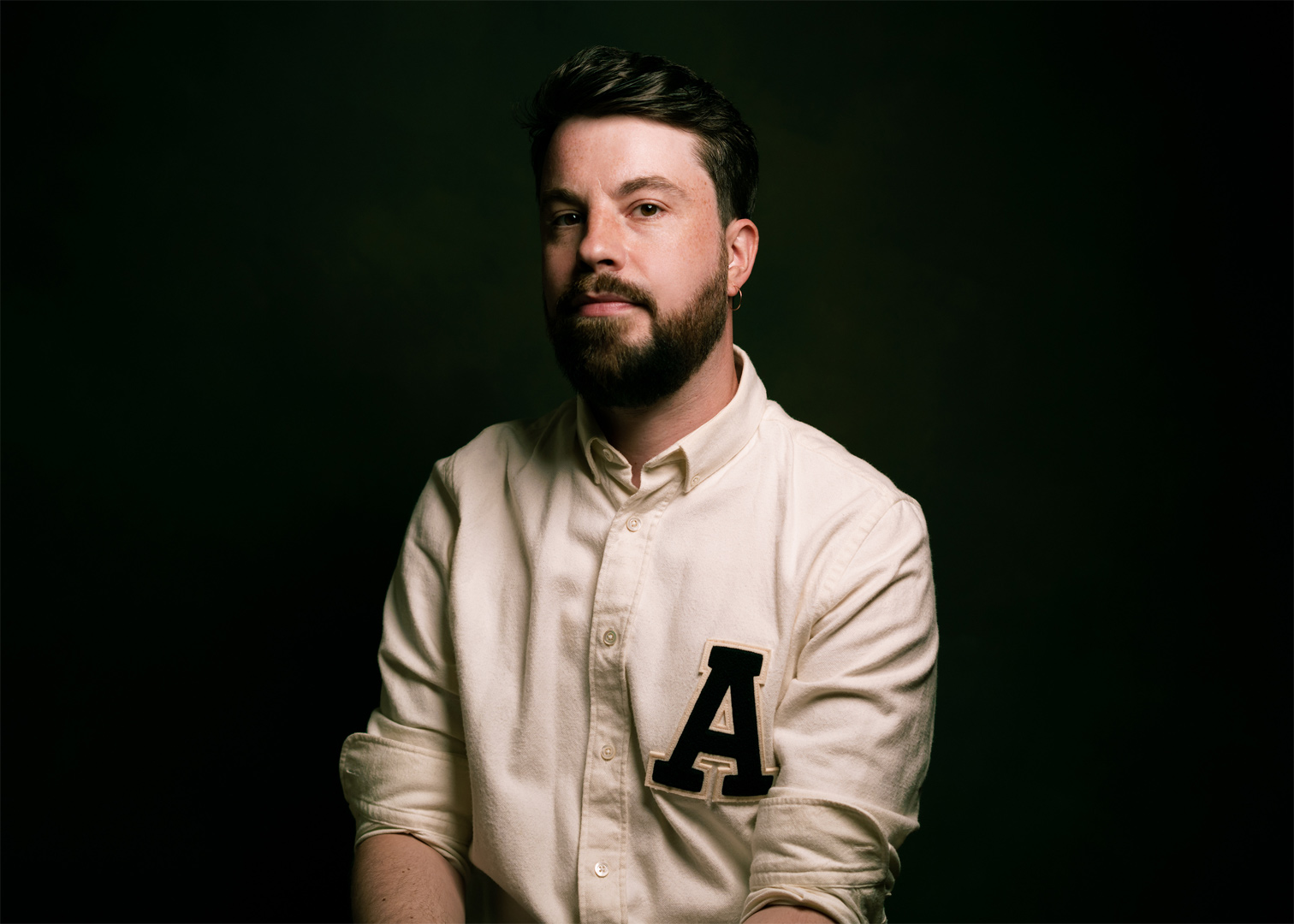 ADAM JANOTA-BZOWSKI
ADAM JANOTA-BZOWSKI
So you’ve done music for advertisements. You’ve done television and you’ve done films. What’s one of the most important things that you’ve learned throughout all this process?
I’ve never really thought about it like that. I know that I tried to release music back in the day under my own name and was very unsuccessful, but when I started collaborating with directors, my music had a greater sense of purpose and somehow seemed to improve massively, so I’ve learned that I clearly thrive on collaboration. When you write music for film, you are not the center of attention. You’re supporting the picture. I actually think that learning to not be the focus is actually incredibly beneficial to how good my music has become. I don’t think it’s wonderful. What I mean is I think my music has become better. I think it’s better music now that I’m writing music for films. I still think movies are magic. You watch how these things are created, and like I said earlier, I don’t know if it’s going to be a good film because there are so many people at play. There are so many craftsmen, such an incredible quantity of artisans that come together to make this thing happen, and I’m just a small piece of that puzzle. I happen to be one of the loudest pieces, but it’s by no means the most important. The most important thing it’s taught me is a newfound appreciation for films. I used to watch films and have an attitude, sat back, arms crossed, looking like, “Entertain me.” Now I’m just thinking, “Look at that shot. Look at that makeup. Look at the outfit. Look at that miniature in the background.”
I can see everything and I’m constantly amazed, even if I think it’s a shit film. You made something and it’s awesome!
I love that because you always get end-of-year best of lists and then there’s always some idiots that are listing the “10 worst” whatevers. I’m sitting here thinking, “You might think those are the 10 worst, but guess what? Someone created that and it didn’t exist last year and isn’t that awesome?”
I think we need to give everyone a bit more latitude and just be thankful for them making something. Thank you for making some art, because it nourishes us all. Even if you hate it, that’s awesome because at least you’re feeling something.
We’ve been talking a lot about dread and your ability to write dreadful music. Is there another genre of film that you would like to compose for that’s not dreadful and not incredibly intense?
Yes! Have you ever seen Dewey Cox?
Yes, the fake biopic?
That is some of the best music I’ve ever heard, and it’s just these incredible pastiche comedy songs. I love pop music and I would relish the opportunity to write pastiche pop music for a comedy film. I just did a TV show called Truelove, which was on BBC Channel 4 and I got to write a lot more melodic music. They even let me play piano for the first time! Hopefully, people will start to realize that I can make nice music and that I’m not just this miserable, bone-smashing, conch-blowing, doom machine.
After Out of Darkness and Femme, where can we hear your music in the future?
Well, I’ve finished a film called The Wasp, which is based on a play [by Morgan Lloyd Malcolm] which was crazy. Again, another film I had to do in three weeks, but I hired a contrabassoonist, so it’s got all these crazy honks in it. I’m just finishing up on a film called Animal, although it might change its title, but again I am the last person to know anything about what happens with these films. You know, it could just come out tomorrow for all I know. I couldn’t tell you if these will ever be released, with what’s happening to tax write-offs these days. Make the art then
just delete the art. It seems to be what people are doing.
Erik Heine
Erik Heine is a journalist and musical analyst specializing in film music. He holds a PhD in Music Theory and is Professor of Music at Oklahoma City University, where he has taught since 2005. He is also a member of the International Film Music Critics Association (IFMCA) and writes the thematic and analytical introductions for Chris Siddall Music Publishing and liner notes for various labels.
An Interview with Anna Drubich
Anna Drubich is a Russian-born composer of both concert and film music, and has studied across…
Interview: Rebekka Karijord on the Process of Scoring Songs of Earth
Songs of Earth is Margreth Olin’s critically acclaimed nature documentary which is both an intimate…
Interview: Giorgio Giampà on his approach to scoring The Good Mothers
Canneseries-winning composer Giorgio Giampà dialled in all the way from Guatemala a few weeks back…
Don't miss out
Cinematic stories delivered straight to your inbox.
Ridiculously Effective PR & Marketing
Wolkh is a full-service creative agency specialising in PR, Marketing and Branding for Film, TV, Interactive Entertainment and Performing Arts.
